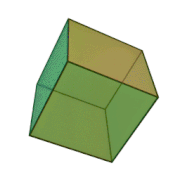
We know the saying “as busy as a bee,” but we don’t know how bees play. Scientists found one way. They did tests on bees and found they liked playing with small balls. The bees played like humans. Young bees played with more balls than old bees. Adult males played with balls for longer than females did.
There were 45 bumblebees in the tests. They had two choices. One was to go straight to a sugary treat. The second was to get to the treat after going around small balls. Most of the bees played with the balls first. A researcher said bees have feelings. She added that the minds of insects are more advanced than we thought.
Անծանոթ բառեր
saying-ասացվածք
as busy as a bee-այնքան զբաղված որքան մեղուն
Scientists-գիտնականներ
tests-փորձակում
add-ավելացնել
mind-միտք
insects-միջատներ
researcher-ուսումնաասիրող
advanced-բարդ
like humans-մարդկանց նման
male-արու
female-էգ․
Paragraph 1
- We know the saying․
- As busy as a bee․
- We don’t know how bees play․
- Scientists found one way․
- They did tests on bees․
- They liked playing with small balls․
- The bees played like humans․
- Young bees played with more balls․
Paragraph 2
- There were 45 bumblebees a. feelings
- They b. treat
- a sugary c. we thought
- going d. first
- bees played with the balls e. in the tests
- bees have f. insects
- the minds of g. had two choices
- more advanced than h. around small balls
Լրացրեք բաց թողած բառերը:
We know the saying “as busy ___________________,” but we don’t know ___________________. Scientists found one way. They ___________________ bees and found they liked playing ___________________. The bees played like humans. Young bees played with more balls ___________________. Adult males played with balls ___________________ females did.
There were 45 bumblebees ___________________. They had two choices. One was ___________________ to a sugary treat. The second was to get ___________________ after going around small balls. Most of the bees ___________________ balls first. A researcher said ___________________. She added that the ___________________ are more advanced than we thought.
Տեքստի բոլոր բառերը միացել են իրար, առանձնացրեք և ստացեք տվյալ տեքստը:
We know the saying ”as busy as a bee, ”but we don’t know how bees play. Scientists found one way. They did tests on bees and found they liked playing with small balls. The bees played like humans. Young bees played with
more balls than old bees. Adult males played with balls for longer than females did. There were 45 bumblebees in the tests. They had two choices. One was to go straight to a sugary treat. The second was to get to the treat after going around small balls. Most of the bees played with the balls first. A researcher said bees have feelings. She added that the minds of insects are more advanced than we thought.

